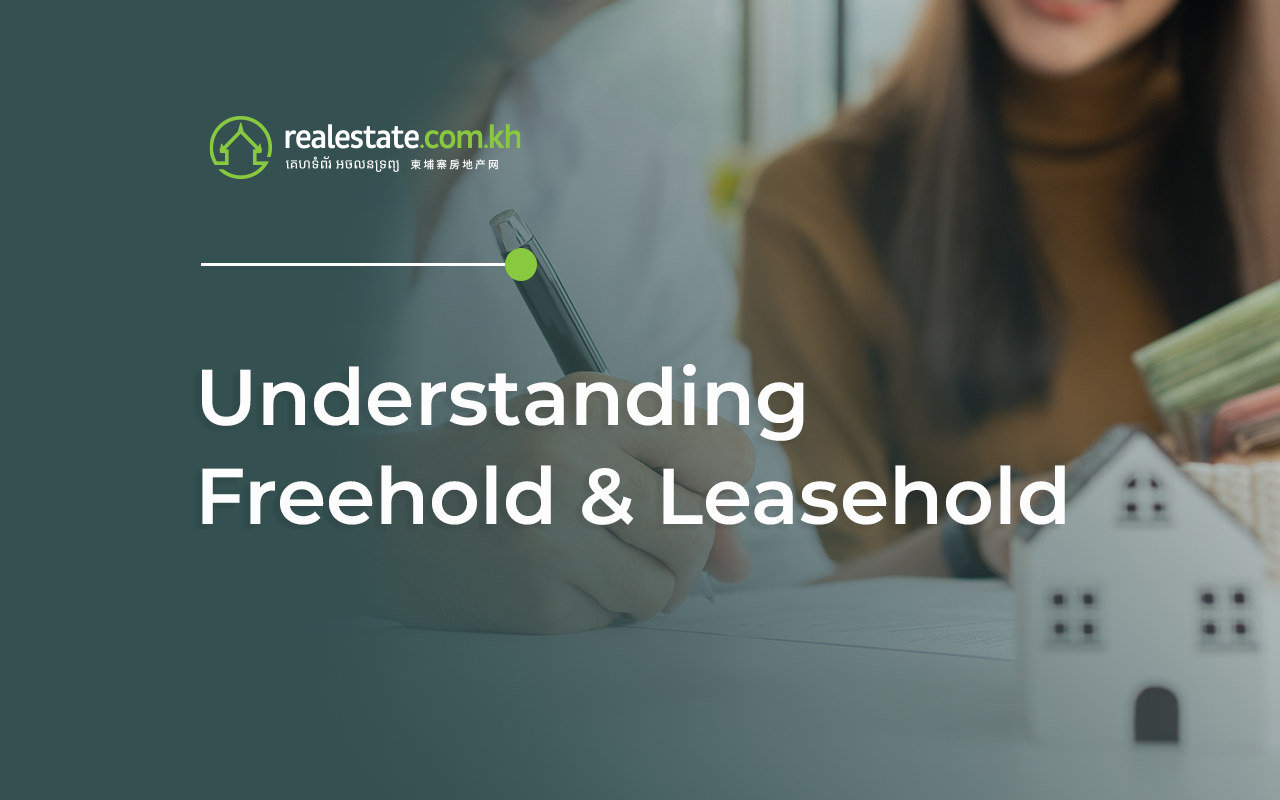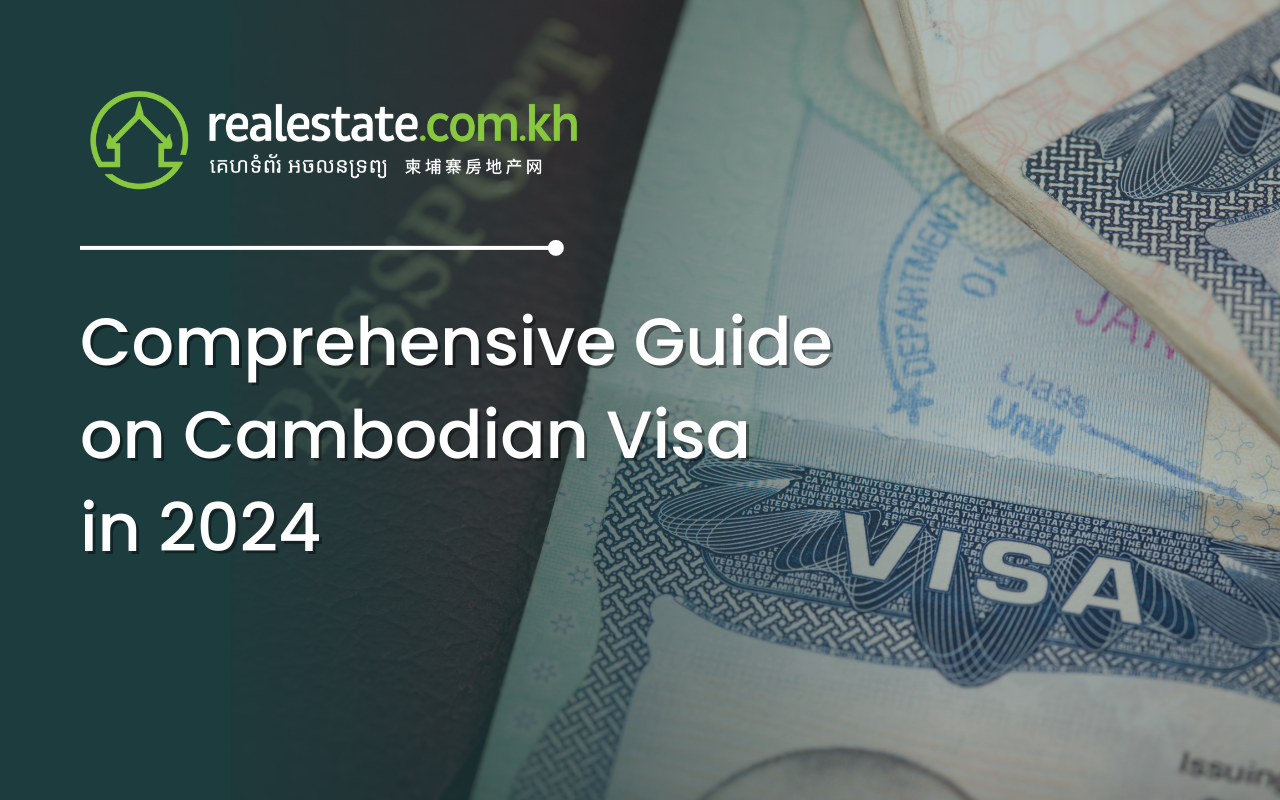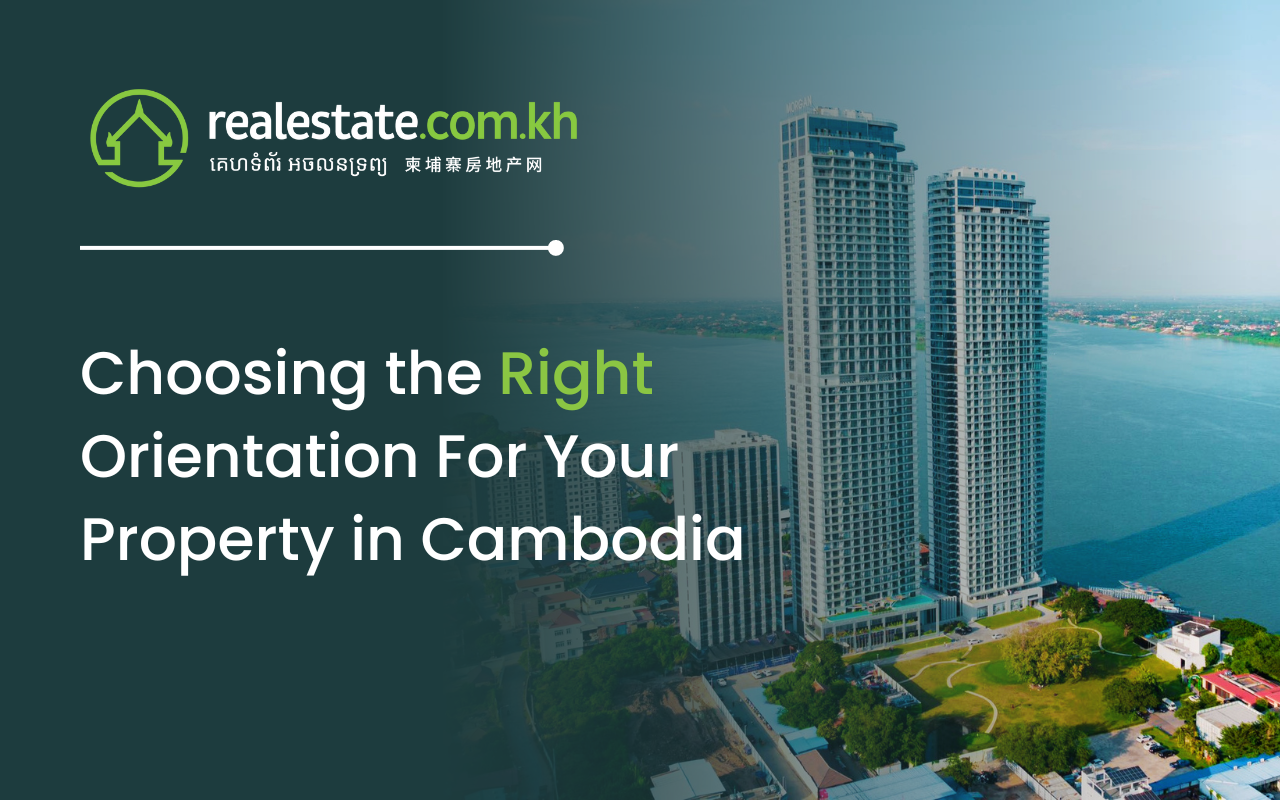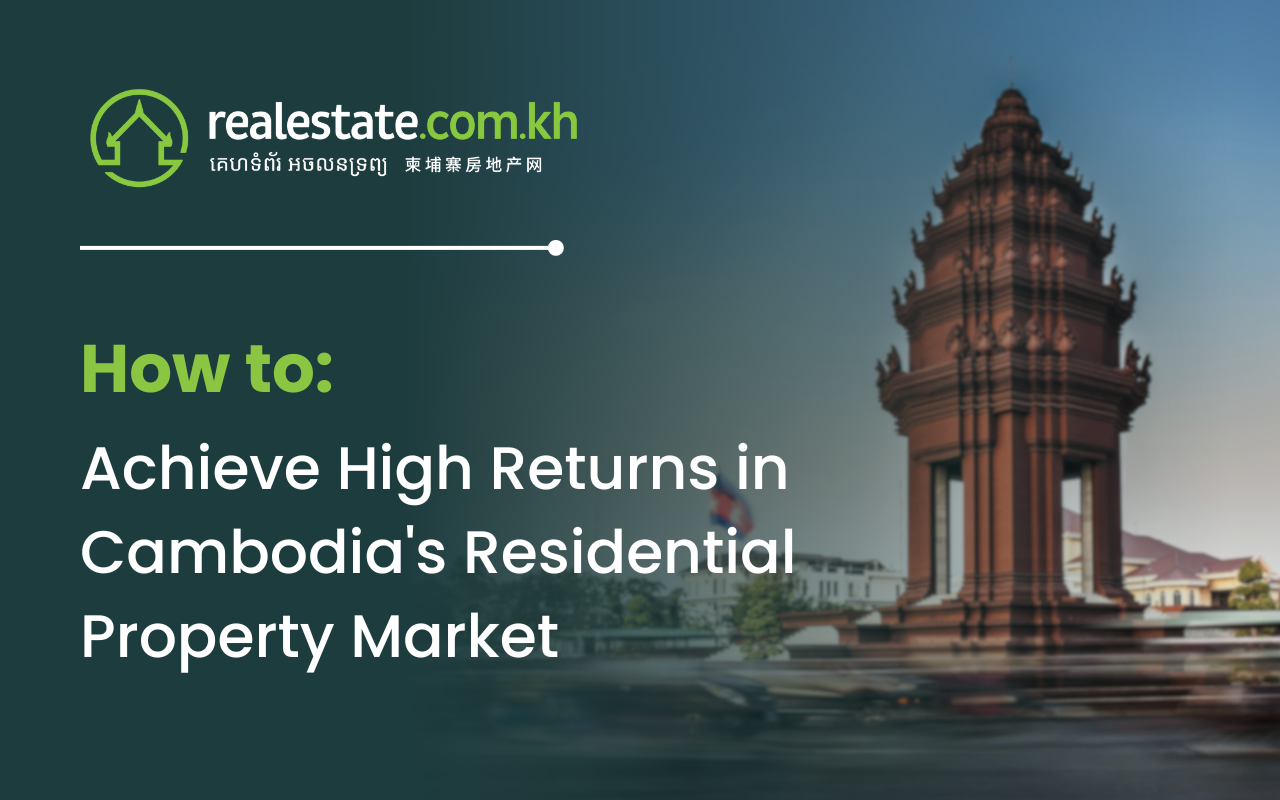When considering the purchase of a property, it is essential to understand the different types of ownership structures available. The two primary forms of flat ownership are freehold and leasehold. This article aims to define and shed light on the distinctions between these two ownership models in Cambodia, allowing prospective buyers to make informed decisions.
Freehold Ownership
Freehold ownership refers to absolute ownership of a property, including the land on which it is situated. Acquiring a property that one can own indefinitely, with the freedom to possess it for as long as desired, is a goal for many individuals.
In Cambodia, this aspiration can be achieved through the acquisition of a property with a "Hard Title." Considered the most superior form of ownership, a Hard Title proves the ultimate status of ownership of the property. Recognised on a national level, Hard Titles are issued by the Ministry of Land Management, Urban Planning, and Construction, ensuring their legal validity. Each Hard Title certification is stored in the national land database, providing an additional layer of security, as it cannot be revoked or taken away by anyone.
Furthermore, foreign individuals have the opportunity to own properties with Hard Titles, with their equivalent through strata title when purchasing a condominium allowing them to invest in Cambodian real estate with confidence and long-term stability.
Leasehold Ownership
Leasehold ownership, on the other hand, involves the purchase of the right to occupy a property for a fixed period, as stipulated in a lease agreement with the landowner or the developer. In this scenario, the land on which the real estate stands is owned by another party, such as a developer or landowner. The leasehold period can vary widely, ranging from a few decades to several centuries, depending on the terms of the lease. In Cambodia, leasehold ownership is a common arrangement, with a typical lease term of 50 years and the option for a one-time renewal of 99 years. The Cambodian government grants leasehold rights to specific companies or entities for the purpose of investment or development.
During the lease period, the leaseholder has exclusive possession and usage rights over the land and any premises built on it. However, it is important to note that at the end of the lease term, the government retains the right to reclaim the land and any structures on it.
Leasehold ownership in Cambodia also allows for foreign ownership, enabling individuals from outside the country to participate in the real estate market. It opens doors for foreign investors to engage in various sectors, including residential, commercial, or industrial properties, within the specified leasehold period.
It is advisable for those considering leasehold ownership in Cambodia to consult legal professionals and thoroughly understand the terms and conditions of the lease agreement, including any potential obligations, restrictions, and renewal options. By doing so, investors can make informed decisions and navigate the leasehold process with confidence.
To provide a comprehensive comparison between freehold and leasehold ownership in the context of condominiums in Cambodia, the following chart outlines the key distinctions and features of each ownership type:
Ownership Type |
Freehold Ownership |
Leasehold Ownership |
|
Definition |
Absolute ownership of the property and land |
Purchase of the right to occupy for a fixed period |
|
Land Ownership |
Includes ownership of the land |
Land ownership retained by another party
|
|
Duration |
Indefinite |
Fixed period, typically 50 years with a renewal option |
|
Renewal/Extension |
N/A |
Renewal or extension is possible depending on lease terms and a one-time renewal of 99 years. |
|
Ownership Rights |
Full rights to use, modify, and sell the property and share in decision-making for |
Exclusive possession rights during the lease period. Compliance with lease terms, including payment of rent and adherence to lease conditions |
|
Foreign Ownership |
Permitted for individual strata title basis |
Foreign ownership allowed within the leasehold period for investments and development |
|
Pros |
Permanent ownership, control, and flexibility |
Opportunity for investment without full ownership. |
|
Cons |
Higher initial investment and potential risks |
Limited control over the property and land. The eventual return of property at lease expiration. |
Conclusion
In the context of Cambodia, both freehold and leasehold ownership options are available for foreigners. The Cambodian Law allows foreigners to own condominiums on an individual strata title basis, granting them freehold ownership rights. This means that foreign buyers can acquire absolute ownership of the unit, as well as a proportional share of the common areas and facilities. Freehold ownership provides foreign investors with a sense of security and controls over their property investment.
On the other hand, leasehold ownership is also prevalent in Cambodia, especially in cases where the land is owned by Cambodian individuals or entities. In leasehold arrangements, foreign buyers can enter into long-term lease agreements, typically for durations of 50 years or more, with the landowner or developer. During the lease period, the foreign buyer has exclusive possession and usage rights of the real estate. Leasehold ownership can be an attractive option for those seeking to invest in Cambodian real estate but may prefer not to pursue the freehold ownership route.
It is essential for potential buyers in Cambodia to carefully review and understand the terms and conditions of both freehold and leasehold ownership options. Seeking professional advice and conducting is highly recommended to ensure compliance with Cambodian laws and regulations governing property ownership.
If you are interested to learn more in detail about the ownership structure in Cambodia, our real estate agents are ready to assist you. Contact us today.





Comments